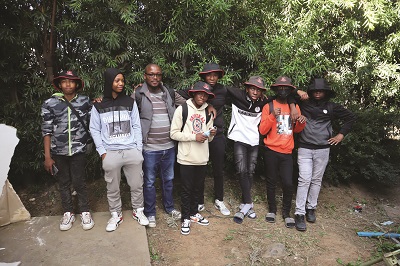How can young people become leaders if the church does not take pains to groom them into proper leaders?
We are always surprised at the number of young people who are in pain, burdened, broken, disoriented and suffering. Disrupted homes, loneliness and guilt seem to be the norm among the young people of today. Most of whom are therefore looking for healing and hope. Informative finds views from church seniors, if they are to make an impact in the lives of these hurting souls, what action must be taken to offer hope and healing to them, and be the place of comfort at all times.
Parish Warden Sello Maphaila from Anglian Church of Lesotho in Hlotse says it is the responsibility of leaders to shape the youth into better people. For the past 17 years he served Lesotho national assembly as a member of parliament. During that time, he became aware of the huge need for prayer especially among the country’s leaders. Once the elders follow in the right path, the youth will easily follow. Leaders need to be prayerful, call upon Jesus in everything they do and be truthful about that. There are so many challenges facing the young people and it is the responsibility of those in authority to ensure they become role models that can positively influence the young generation. 70% of crimes occurring at night involve the young generation, this is duly caused by the frustration and the lack of guidance among the young people which the elders need to provide.
Marets’epile Monddy Mohoanyane is a Pastor’s Wife at God’s House Church. She believes that the church has a biblical calling to teach and capacitate the youth to become independent and responsible future leaders. Not only in their social, educational and psychological status, but also in their spiritual and moral aspects (Deut 4:9, Prov 22:6 and Ephs 6: 1-4, etc.). churches have to explore and put in place resources that help the youth address their challenges, as well as put in place strategies to alleviate these challenges. Most of the churches, if not all, do this by setting up youth specific ministries, where they are taught spiritual identity in Christ so that they may develop an actual and a personal relationship with God. The church needs strong spiritual leaders who are willing to put heart and soul into training these young minds, loving and capacitating them through biblical teachings, and forging short and long term leadership to them.
On the website Pentacost.ca, Pastor Philip Chemel a National Youth Pastor writes that society is always bombarding young people with information that tells them that love is conditional. However, churches are to model the love of God that is demonstrated unconditionally. The bible says that, “when we were yet sinners Christ died for us”[5]. He first loved us even when we did not love Him. This is the kind of love churches are to demonstrate to young people at all times. Giving them the acceptance they so crave for is the duty of the church and if the church is not able to offer that to young people, they tend to find them in other things and places. Most of young people are starved of affirmation which is defined as the art of “catching the young people do something right and celebrating with them. It is looking for those opportunities to affirm character and growth in Christ”[7]. He writes “Once we are able to do that, we win their trust and they feel a sense of belonging. We need to affirm them privately, publicly and also perpetually.” As stated earlier by Maphaila, Chemel reiterates that the young people of today are looking for role models, and if the church is not able to provide them with the sort of role models who will help them in modelling their lives after Christ, some mostly do opt for mental and physical sport while others will naturally gravitate towards unlawful activities and follow ungodly figures to fill the void of role models.


